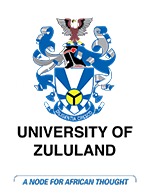
The Human Movement Science department is committed to the different pillars of the university (teaching, research and community engagement). We are focused on ensuring our students develop the skills required to help them excel in careers in the field and also be able to adjust in new trends as they develop. The courses offered are very practical and students will be involved in working with local schools, sports teams and biokinetics practices. The Department is the leader in providing education for the Human Movement Science students in the KwaDlangezwa area. The Department strives to provide quality education in Human Movement Science, in line with similar programs offered elsewhere in the country, but address specific needs in the community. This qualification will provide students the opportunity to extend knowledge, understanding and practical skills in the key areas of sport and exercise science relating to sport performance, physical activity and health. The qualification will also expand access to further tertiary education providing students with learning and career pathways with opportunities for articulation with other qualifications within the Department and other institutions.
The Department of Human Movement Science offers three qualifications: Diploma in Sport and Exercise Technology, BSc Human Movement Science and BSc Human Movement Science Honours (Biokinetics).
The National Diploma in Sport and Exercise Technology qualifies a learner to become a health and fitness instructor or a sport and exercise scientist. A Sport and Exercise Scientist can work collaboratively with the sport medicine team including sport physicians, physiotherapists, biokineticists, coaches, educators and exercise professionals to ensure the transfer of safe and effective scientific training principles to athletes/clients.
BSc (Human Movement Science) gives students an opportunity to follow a professional career as a qualified coach, coaching manager, sport official or exercise scientist. Students focus on the following coaching practices: the development of training programs, sports nutrition, biomechanics of sport, physiology and sports performance, medical considerations in sport, sport psychology and risk management.
Recommended second major: Biochemistry, Microbiology, Physics or Zoology.
BSc Honours Human Movement Science (Biokinetics) at the University of Zululand
To be admitted to the BSc Honours Degree in Human Movement Science (Biokinetics) programme at the University of Zululand, a student shall have passed all their BSc degree modules and in their final-year have passed their major subject (BSc Human Movement) that leads to the honours degree with an average final mark of at least 60%. Maximum of twelve students are selected for specialization in Biokinetics. These students register with the Professional Register for Biokinetics of the Health Professions Council of South Africa. Students specializing in Biokinetics are required to do simultaneous internship in the Department where they study as well as a further year at an accredited institution before they can register as a Biokineticist. Students are themselves responsible for find a position for the second year of internship. Students are required to do and pass all seven modules according to the fields of specialization as outlined below with a sub minimum of 50%. The total credit value of this year long qualification is 120 credits at NQF level 8. BSc Human Movement Science Honours Biokineticist entails four years of academic education (degree study) and two years of professional (internship) exposure. A Biokineticist is a Clinical Exercise Specialist who: Functions within professional alliance to health and medicine; Improves a person’s physical wellbeing and quality of life through individualised scientific assessment and the prescription of exercise. Possible career paths as a Biokineticist: Corporate Sector, Correctional Facilities, Elite and Professional Sport, Fire Services, Industry, Local Authorities, Military Basis, Police Services, Private Practice, Clinical Environment, Academics and Research.
